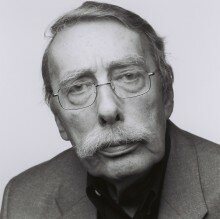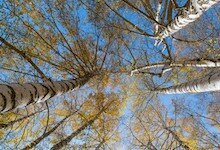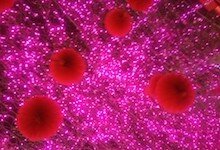Nederlands ►

Gerrit Kouwenaar was first published in clandestine publications during World War II. After the war he earned a living as a translator (a.o. Sartre, Dürrenmatt and Brecht) and journalist. Together with a.o. Lucebert and Hugo Claus he was a leading member of the 50s Movement and edited the influential anthology Vijf 5tigers. His volumes een geur van verbrande veren (a smell of burnt feathers, 1991) and de tijd staat open (time is wide open, 1996) have won him universal critical acclaim as well as the important VSB Poetry Prize.
Kouwenaar’s poetry is usually described as a kind of murder. In his poems Kouwenaar tries to cancel the denotative character of words. “I cut the throat of a word,” according to the opening poem in autopsie/anoniem (autopsy/anonymous, 1965, included in Gedichten 1948-1978 [Poems 1948-1978']). Cancelling the denotative character of words is an attempt to jettison the reality which is formed in and through the words that refer to it. It allows a poem to turn in on itself, becoming a thing among things, becoming reality itself. As such the poem no longer belongs to the poet who can no longer use it as a vehicle for his thoughts and emotions (“this / is no longer your property, master”, Kouwenaar tells himself). The poet and the poem’s inspiration disappear behind the poem, it supplants them. Even time, with its constant passing, the only reality in our everyday lives and something which can only lead to one thing for those who, like Kouwenaar, are simple heathens: even time is brought to a standstill within the poem. This makes the poem a time-and-place-dependent eternity.
Writing poetry is thus an extremely paradoxical activity for Kouwenaar: it is “murder” (bringing things to a halt) in order to escape from death (total standstill); it is a settling of accounts with one’s own transience in order to attain an eternity in which one escapes from one’s own mortality. It is, as Kouwenaar himself described it, “the osmosis of eternity and impermanence”, “something that holds its ground on the edge of loss”. The result is poetry which deals above all with the possibilities and impossibilities of poetry itself. Poetry in which an attempt is made “to put silence to music/ but keep the name silent”.
In Kouwenaar’s early poetry death is a poetic concept but in the volumes that have appeared since the collected poems in 1982 – het blindst van de vlek (the blindest of the spot, 1982), het ogenblik: terwijl (the moment: while, 1987), een geur van verbrande veren (a smell of burnt feathers, 1991), de tijd staat open (time is wide open, 1996) – a gradual change is apparent. For the poet the killed, eternal reality of the poem seems to display more and more similarities with his own biological death. “The word is dead, it must be writ,” writes Kouwenaar now, in the realisation that writing as action, as deed, is the only thing that can offer solace in the face of the suddenly menacing standstill and eternity of the word that has been written and is fixed forever in his letters.
Despite the heaviness of this theme, the tone of Kouwenaar’s poetry is still generally cheerful and militant. Delicious meals are enjoyed and glasses are raised. He might have finished the roast game of the main course, but he is still enjoying the ripe word melon, and he still concludes these poems by pouring himself a glass of the water of life and observing: “here in my dusk the old full life still shoots sparks/ and postponed flesh bickers with the mind”.
Publications (selection):
Uren en sigaretten (novellas, 1946)
Negentien-nu (novel, 1950)
Ik was geen soldaat (novel, 1951)
Val, bom (novella, 1956)
Gedichten 1948 - 1978 (poems, 1982)
Een eter in het najaar (poems, 1991)
Er is geen elders waar het anders is (poems, 1993)
helder maar grijzer. Gedichten 1978 - 1996 (poems, 1998)
totaal witte kamer (poems, 2002)
Vallende stilte (selected poems, 2008)
Collections of translations of Gerrit Kouwenaar's poetry have appeared with Kleinheinrich (Germany, 1996), Limes (Germany, 1972), Artistow (Poland, 1986), Ellerströms (Sweden, 2001) and in numerous anthologies and magazines.







